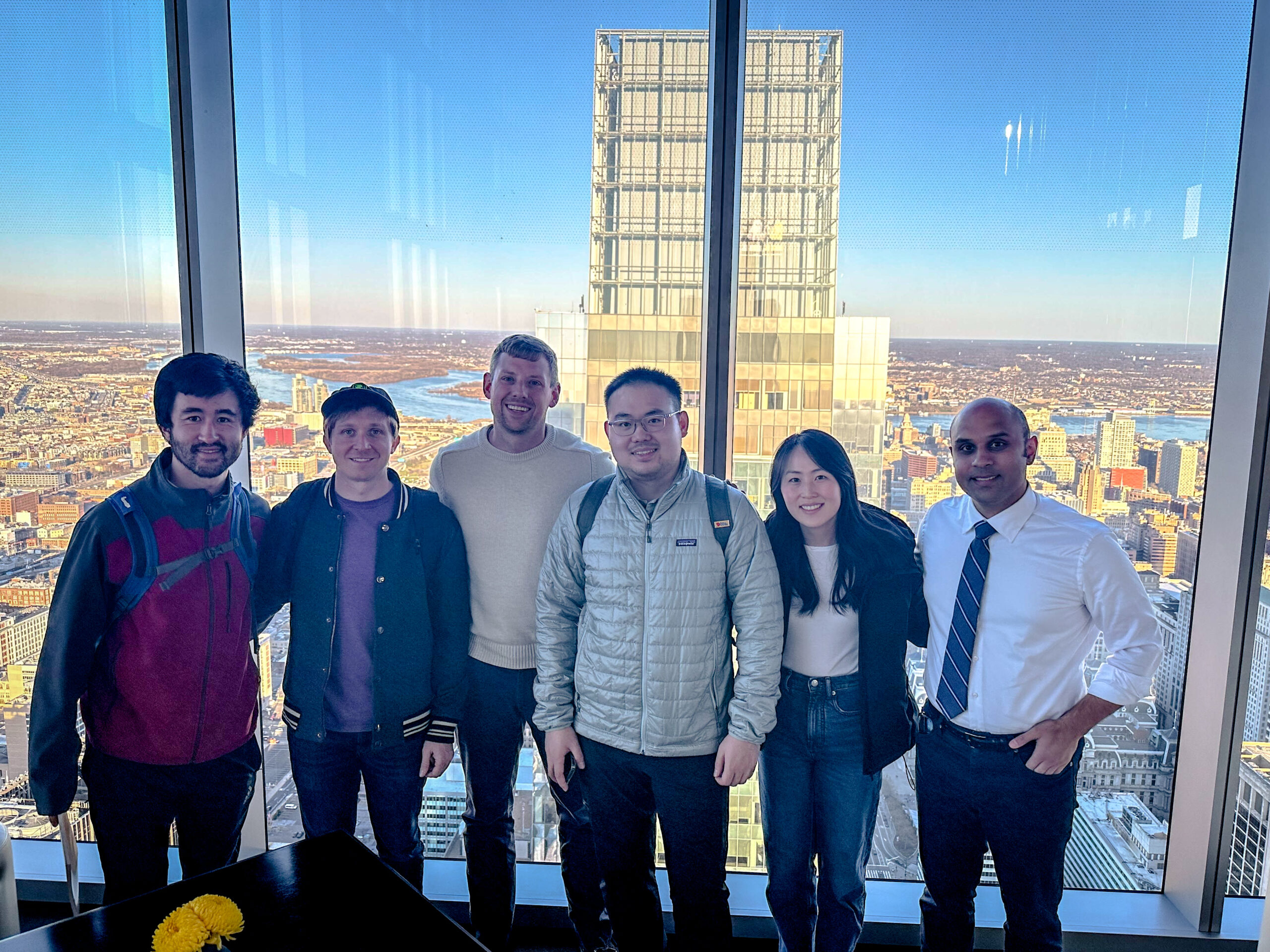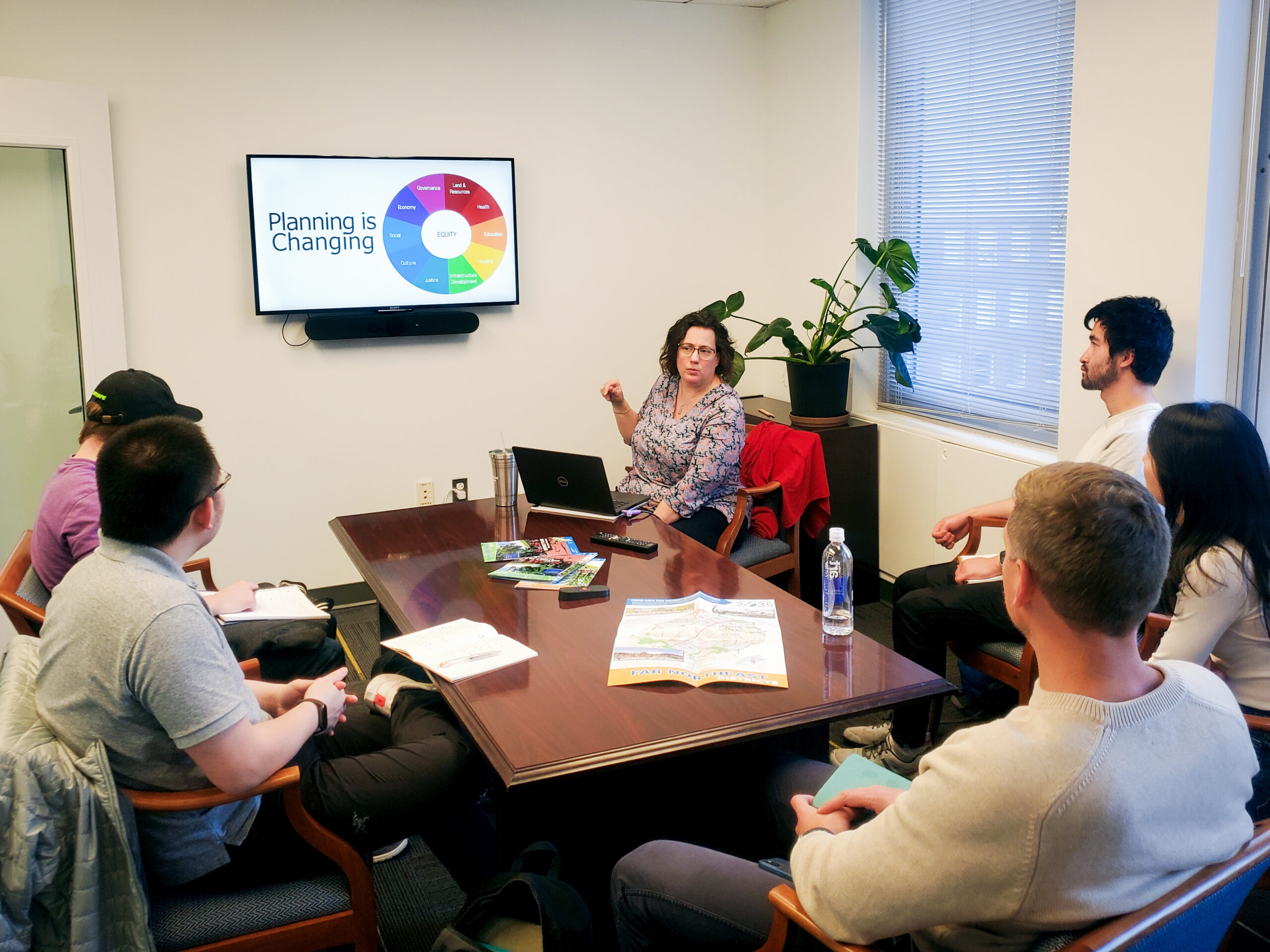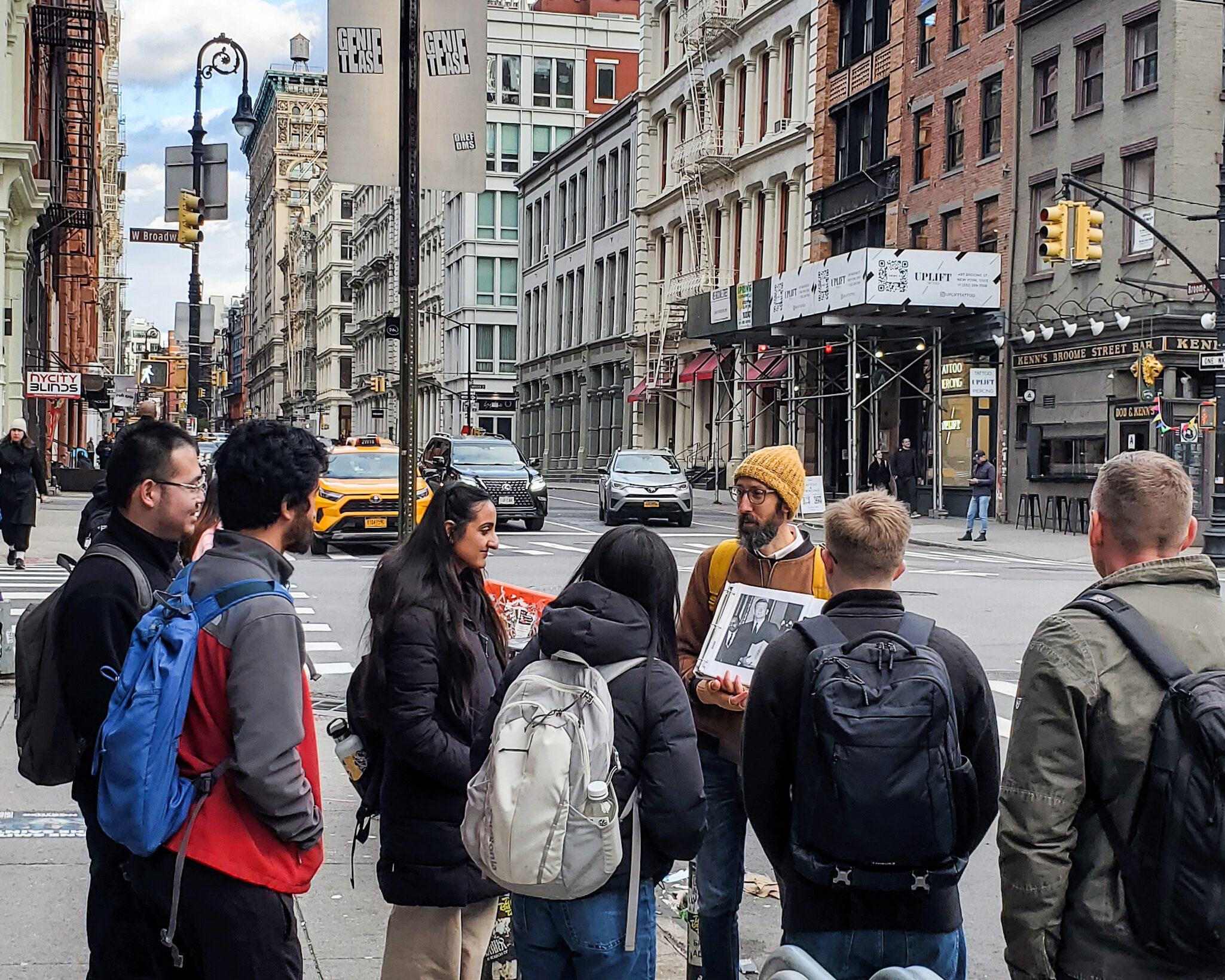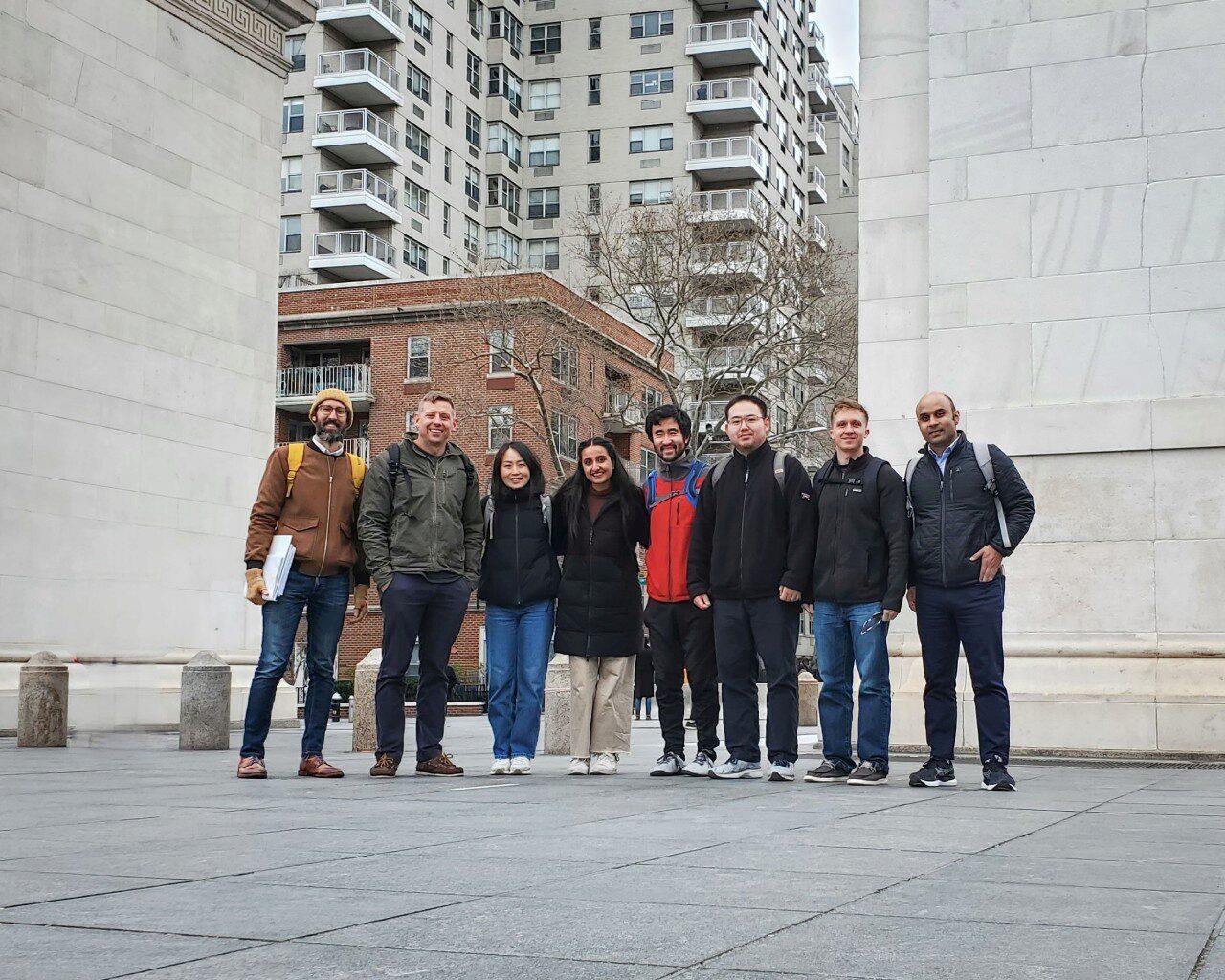New Lauder Course Explores Urban Design, Innovation, and Leadership in Cities Around the Globe
April 10, 2024
A new course at the Lauder Institute, The City Paradox: Design, Innovation, and Leadership, explores the intricate nature of cities as both engines of prosperity and arenas of inequality and violence. Led by Lauder faculty and historian Dr. Sudev Sheth, students analyze pressing questions about urban development, such as why certain cities thrive while others decline, whether urban sprawl warrants celebration, and how cities saturated with historic infrastructure adapt to modern environmental challenges. The course centers on three primary themes: the historical design of cities and the repercussions of urban planning; the modern city as a site of accumulation of labor, capital, and entrepreneurship; and, the influence of diverse forms of leadership on urban social dynamics.
Professor Sheth explains, “cities have captured our imagination through centuries and across geographies. Taking an interdisciplinary approach, this course equips students with key concepts to discuss how humans shape their environments and the debatable outcomes of high-density living.” He says, “I am most delighted when students make connections between unlikely places – for example, Chandigarh, Brasilia, and St. Louis, located in three different countries but united as sites of mid-20th century experiments in modernist urban design. And that every participant has some experience with a world city enriches our weekly discussions and site visits.”
As part of the curriculum, students visited nearby city centers to gain firsthand insight into the impact of urban development. They engaged in discussions with the Director of Comprehensive Planning at Philadelphia’s City Planning Commission, examining how demographic shifts and economic cycles have shaped Philadelphia’s design across centuries. Additionally, the class enjoyed a walking tour of Greenwich Village in New York City, learning about urban transformation and civic leadership from local experts.
The City Paradox: Design, Innovation, and Leadership, offered annually in the spring, is open to graduate students and advanced undergraduates from all schools at Penn. ■






